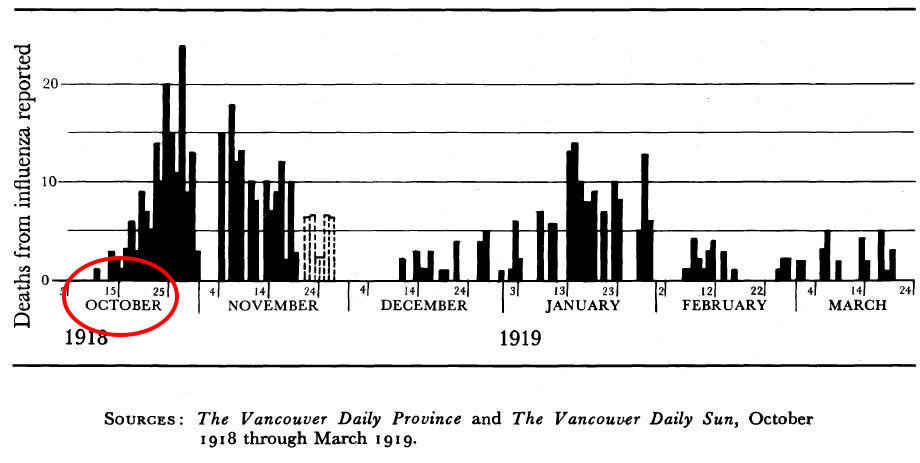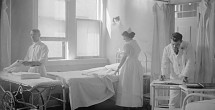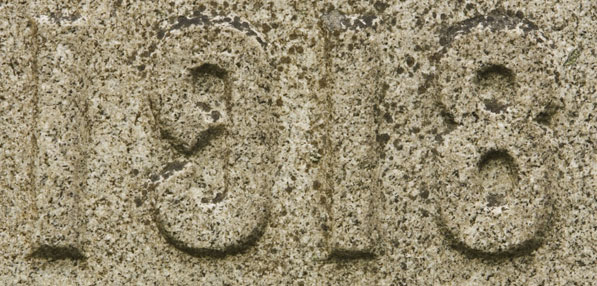October in health care history
Harry Peuch died on October 10th, 1918 at St. Paul’s Hospital. His death made the newspapers, because he was the first person to die in Vancouver from the Spanish flu. By October 18th there were an estimated 900 cases and 32 deaths in the city. October of 1918 was when Vancouver (and the rest of BC) was hit hardest by the Spanish flu epidemic.

The strain of influenza that killed up to 20 million worldwide was deadly for otherwise healthy people with strong immune systems. Most of the deaths were among those aged 20 to 40 years. The virus worked so fast that a victim might be seemingly healthy in the afternoon and dead the next day. The respiratory distress was so sudden and severe that victims often suffocated in their own respiratory secretions.

Staff prepare a bed at Vancouver General Hospital, circa 1919. Image Courtesy of the Vancouver Archives.
Early 20th century physicians and scientists lacked the vaccines and technologies of today and could do little to stop the virus. Public health officials ordered people to stay indoors and not to shake hands or kiss. Schools, churches and other gathering places were closed to try to stop the spread. Masks were not readily available and hand hygiene was not as well understood or practiced as it is today. Soldiers returning from World War I on trains from eastern Canada unwittingly helped spread the virus to BC where it thrived in logging camps and First Nations communities as well as towns and cities.
An estimated 4,000 people died in BC from the 1918-1919 flu epidemic—about a quarter of those in Vancouver. In today’s numbers that would be about 37,000 for BC and 5,000 in Vancouver.
Vancouver Coastal Health has robust influenza management and infection control programs for both public and health care workers. Find out how to protect yourself and others from infection.
Sources: BC Centre for Disease Control; Know BC; The Canadian Encyclopedia; Vancouver Sun.


Corinne Eisler
My grandmother almost died from “the 1918” flu epidemic. She was 29 years of age, married, with a toddler. After almost losing his love, my grandfather cranked up his model T Ford, went north to Muskoka, and bought a piece of land, where he built our family “antique” cottage, which still stands today. He felt if he got his family out of “stinky” Toronto during the summers, this would reduce their risk of getting the epidemics that were killing Torontonians in large numbers. Polio was the next great fear. It is interesting to hear what motivates people to do incredible things.